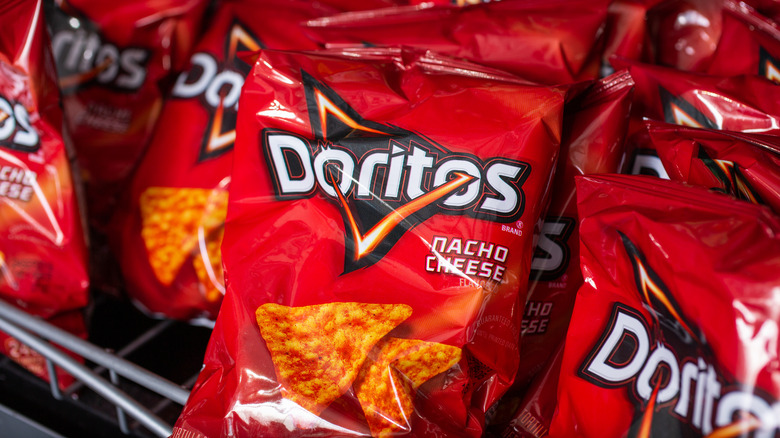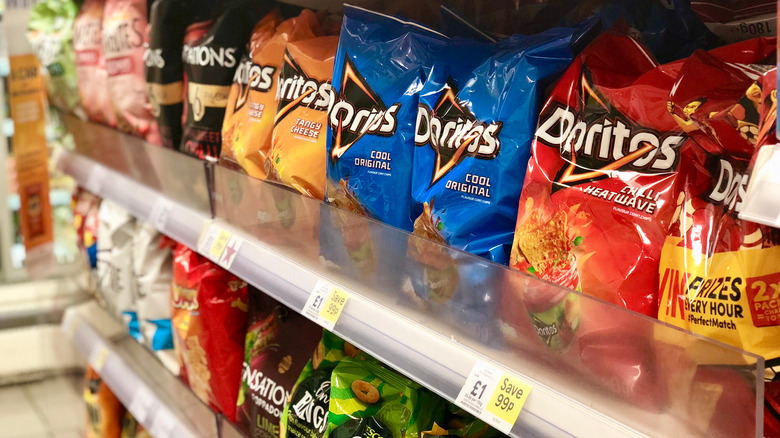The Real Reason Your Doritos Bag May Have Fewer Chips
Inflation has been affecting everyone's bottom line, from regular families to ultra-profitable companies. With prices continuing to surge – "the Consumer Price Index rose by 7.9% through February," per the New York Times - both shoppers and business owners must do what they can to help curb the hit to their wallets.
From a brand perspective, companies recognize that they can't charge consumers much more for the products, since everyone is feeling the pain of rising costs. But what they can do is shrink the product and keep the price the same.
What if we told you that removing a few chips from the bag could save millions of dollars? Surprisingly, that might be the case when it comes to Doritos. The popular snack brand Frito-Lay recently admitted to Quartz that it has taken part in what is known as "shrinkflation," which occurs when companies essentially shrink their products in order to save money without raising the prices for consumers.
You can expect fewer chips in your Doritos bag
Next time you pick up a bag of chips, you won't be getting quite as many as you thought. According to Quartz, companies such as Frito-Lay, which owns products including Doritos, are combating inflation by shrinking the product rather than raising the price. The Doritos chip bags have been scaled down from 9.75 ounces to 9.25 ounces, or about the equivalent of five chips, according to Food & Wine. And if Frito-Lay removes that same number of chips from 200 million bags, News12 reports that it could result in saving the company as much as $50 million, according to analysts.
"Inflation is hitting everyone ... we took just a little bit out of the bag so we can give you the same price and you can keep enjoying your chips," a spokesperson for Frito-Lay told Quartz. Frito-Lay isn't the only brand to take this kind of action. Per Business Insider, several brands, including Hershey's, Pringles, and General Mills cereals, have also been subject to shrinkflation.
Quartz reports that shrinking down products without informing consumers is legal to do in the United States, but it's not easy. There are often additional costs incurred at first since new product designs mean buying new machinery to create them.

